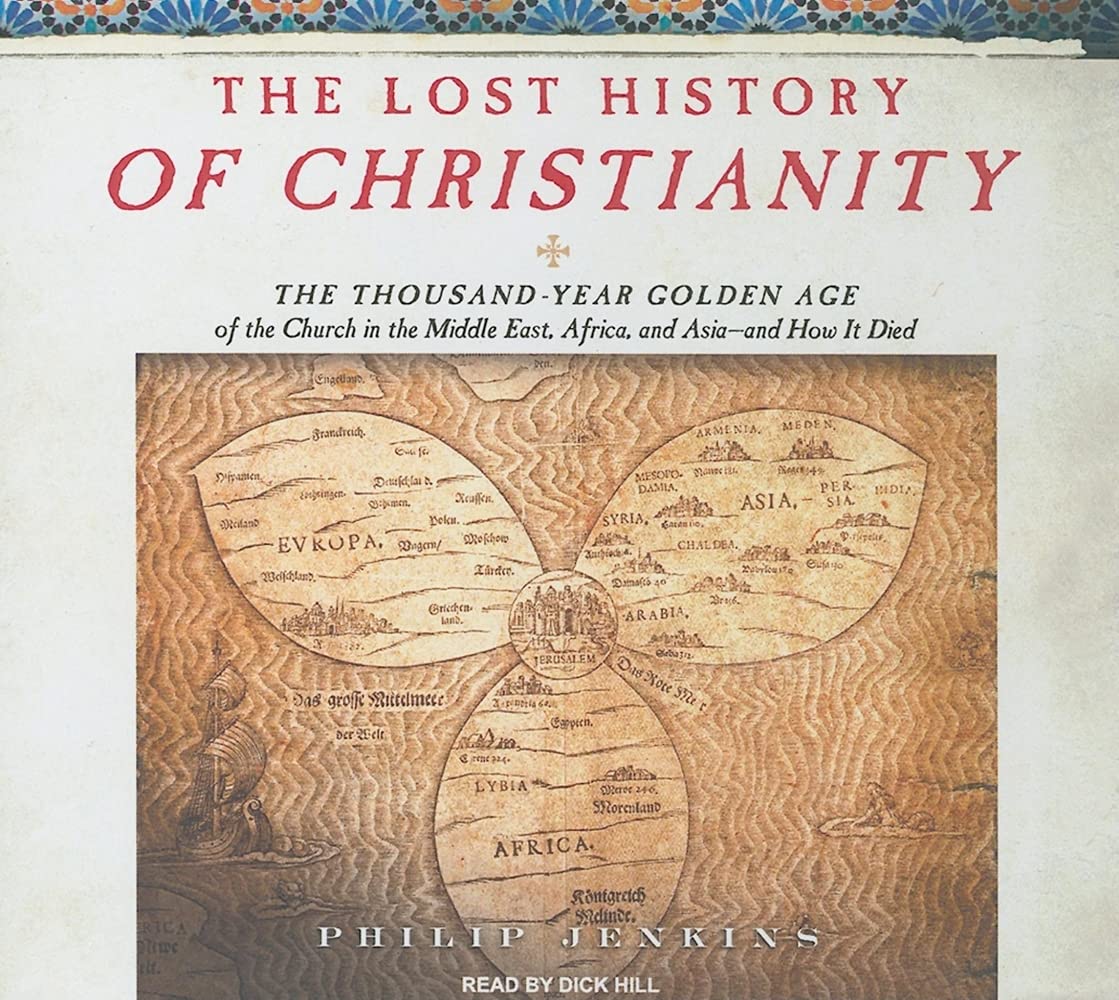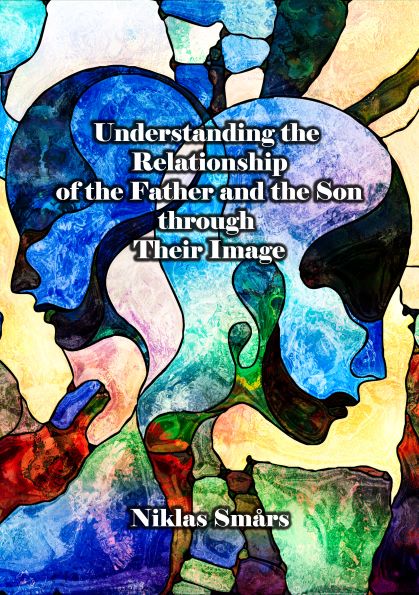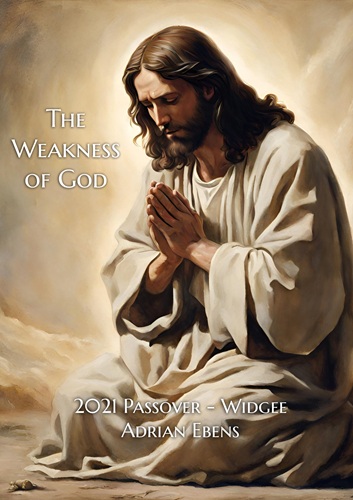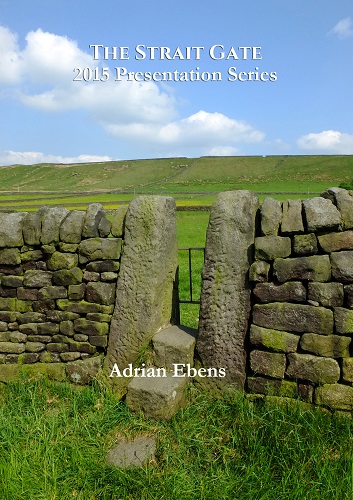“God Killed God” – How Do Muslims Respond to Christian Atonement?
Please watch this fascinating video of a Muslim apologist in a discussion with a Christian. I suggest watching the 1-minute clip first, but then also watch the full 15 minutes. The point where the man says, "God killed God" is at 5:30 in the 15-minute video.
1-Minute Clip
8-Minute Clip, interesting part is around 3:20
Civil Dialogue
First off let us commend the two men that they were actually able to discuss the topic with each other. God says “Come, let us reason together” (Isaiah 1:18), and a huge part of how the gospel process works is by bringing what is hidden to light – what is hidden ever from ourselves – and that requires discussion and hearing other viewpoints.
“Therefore judge nothing before the time, until the Lord come, who both will bring to light the hidden things of darkness, and will make manifest the counsels of the heart: and then shall every man have praise of God.” (1 Corinthians 4:5)
Satan wants to shut down conversations so that what is buried and hidden is never exposed to light. If we never realize our unconscious assumptions are there, we never deal with them, which satisfies our flesh. Thus Satan causes the flesh to act up so we get emotional when our creedal positions are challenged and then we aren’t able to actually rationally analyze how our position comes across to someone else.
That is why many feel like it is impossible to have a civil conversation on matters of actual importance. It is often said the people should talk about anything except for religion and politics – the very issues most at the heart of the great controversy! Yet we see here how blessed all of us are to have this precious interaction between Muslim and Christian where both sides’ ideas are brought out.
Muslim’s Justice Seems More Correct
Particularly I commend the Muslim, because he is the man recording the video and usually that means he would want to be the one speaking. But he lets the Christian man speak because he is confident he has an answer to his point against Islam; it is ground that the Muslim thinks he is in the right on. And he is correct – from an outside perspective, it doesn’t look good when the Christian says that "Allah is unjust because there is no sacrifice because forgiving people without the debt being paid is unjust." (Point here, if a debt needs to be paid, is the forgiveness actually freely given?)
The Muslim pounces on this by bringing the issue out of the theoretical and into the practical human ethical realm. He says, "would I need you to kill my son before I could forgive you? Is that just?"
He also makes the point that "such logic would not work in a courtroom of ANY country in the world! If a man murders someone, do we ever kill someone innocent to declare the other forgiven?"
The free thinker, who has not been indoctrinated into orthodox Christianity, is left wondering: why does God need innocent blood? This makes God look bloodthirsty. It also makes the viewer wonder: why didn't God give the sacrifice sooner then also? (This point we address in the booklet, Discarding Augustine's Covenant Glasses to Receive the Latter Rain)
Growth of Humanity Due to Thousands of Years of God Striving
How do we answer these questions? They aren’t easy. One thing I would suggest is that the reason no courtroom in the world would accept this logic is because of the progress and growth in the morality of mankind, due to the working of God on the human race. It is similar to why there is no more human sacrifice or no more “eye for an eye” – it is because we have outgrown it due to the preaching of many religions, but particularly Christianity. It doesn’t satisfy us anymore…but it used to.
That doesn’t mean that deep down we don’t believe it... and we see that in movies where someone says: “take me in their place!” It is situational; the context of a courtroom may not allow it but in the context of a person wanting revenge or blood, it may be acceptable. Break down our civilizational order, and the old paganism would come back.
This slow process bringing us out of Paganism and into a point where we could actually realize what God is trying to teach us is why the sanctuary could not be cleansed sooner. Man has had to learn from his experiences and his mistakes, and it has taken thousands of years. I discussed this in this presentation: "Why no Atonement for 2300 Years?"
Illogical Metaphysics
As the video of the Muslim and the Christian continues, they begin to enter into identity of God questions. Is Jesus God? How can God die? Why does God A need God B to die? And then a 2nd Christian enters with the startling line “God killed God!” which shocks the Muslim. Even the other Christian says wait, the Romans killed God.
Notice that the Christians take the argument out of the ethical context of a shop owner and stealing and the killing of a son back into something extremely abstract – God killing God. This doesn’t seem useful to everyday life. A religion should help us make sense of scenarios that are relevant to us, like the pardoning of crimes between humans, rather than try to disconnect from common human reality altogether.
Japanese Reaction to Christianity
I was reading a 1910 article in the Atlantic about how Japan was modernizing after the country opened up in 1868 after hundreds of years of not allowing anything foreign. Christian missionaries tried to reach the people, but the people didn’t see much use for the religion. Why? Because they were used to religion dealing in the area of common morals and ethics, not abstract metaphysics. The article says this:
We may note in passing that the situation is not entirely unfavorable to the further development of Christianity in Japan. The rationalistic apathy of the first part of the Meiji era was the most unpropitious soil for religious growth. Rationalism is indeed still strong, and therefore rationalistic forms of Protestantism, especially Unitarianism, have exercised a definite influence among thinking men of Japan. Some scholars even believe in the possibility of a Japanese religion constructed upon a rational basis, with an eclectic use of the best elements in other religions. Of this opinion is Dr. Tetsujirō Inouye, whose writings are quite representative of the thought of educated Japanese. Dr. Inouye’s point of view is, however, essentially secular.
He values religions according to their ethical contents and the moral influence which they exert. Neither Buddhism nor Christianity, considered as forms of supernatural belief, inspires him with enthusiasm. The mixture of doctrines in Buddhism brings about a distracting confusion, and as for moral influence, ‘the majority of Buddhist priests are so bad that if there was such a place as hell they ought to be the first to go there.’ Christian teaching, on the other hand, to his mind lacks many of the characterforming elements in which Confucianism is rich. In common with many Japanese Christians, he believes that the future growth and influence of Christianity in Japan depends upon the manner in which it shall be able to solve the ethical questions that perplex Japan, and to adapt itself to Japanese character and social conditions.
Intellectual Life in Japan, By Paul S. Reinsch, October 1910, Atlantic Magazine
Rational and Supernatural?
Note that Unitarianism was seen as rational, implying that Trinitarianism was seen as irrational. And we see that irrationality manifest here in the “God killed God” statement. Now we know that Unitarianism eventually lost its way, losing all supernatural aspects (most significantly denominational Unitarianism ended up denying the preexistence of Christ). But is there a way where we could keep Christianity rational (and unitarian), while still being supernatural?
To do that requires the begotten Son, for He allows for Christianity to be Unitarian (God to be one) while having a divine pre-existent Son who inherits all things. It is based around 1 Corinthians 8:6 -
...yet for us there is one God, the Father, from whom are all things and for whom we exist, and one Lord, Jesus Christ, through whom are all things and through whom we exist. (1 Corinthians 8:6 NRSV)
One God, the source of all things, and one Son, through whom are all things. This is the Divine Pattern. It is the model for all relationships, making it the key to all ethical questions about how men are to relate to each other (See this short video and more info). This would satisfy Muslims and Sikhs and others that we truly believe in one God (the Father), rather than the confusion of 3 somehow being 1. In our Theos series we mentioned how there was almost a Unitarian revolution in America, that sadly got derailed.
Finally, we would explain that the cross was needed to satisfy the debt that we thought we owed God. It is easy to say God can forgive sins if He wants to, but what if we don’t believe we are forgiven? What if we don’t think we have sinned? What if we don’t think we can actually overcome our sinfulness? What if we don’t trust God? All this God had to solve also. And that is why Jesus had to come, to bring us back to God.
We have so much material on this point. It will be shared at the end of this article. But before that, one more thing…
Christian Influence on Islam
Many know that there was a golden age of Islam. But what many don’t know is that it was the Syriac Church of the East that gave the Islamic Empire much of its glory.
“Timothy [Patriarch of the Church of the East from 780-823AD] could speak so freely [to the Caliph] because Eastern Christians played such a critical role in building Muslim politics and culture, and they had a near stranglehold over the ranks of administration. Their wide linguistic background made the Eastern churches invaluable resources for rising empires in search of diplomats, advisers, and scholars. Eastern Christians dominated the cultural and intellectual life of what was only slowly becoming the “Muslim world,” and this cultural strength starkly challenges standard assumptions about the relationship between the two faiths. It is common knowledge that medieval Arab societies were far ahead of those of Europe in terms of science, philosophy, and medicine, and that Europeans derived much of their scholarship from the Arab world; yet in the early centuries, this cultural achievement was usually Christian or Jewish rather than Muslim. It was Christians – Nestorian, Jacobite, Orthodox, and others – who preserved and translated the cultural inheritance of the ancient world – the science, philosophy, and medicine – and who transmitted it to centers like Baghdad and Damascus. Much of what we call Arab scholarship was in reality Syriac, Persian, and Coptic, and it was not necessarily Muslim. Syriac-speaking Christian scholars brought the works of Aristotle to the Muslim world: Timothy himself translated Aristotle’s Topics from Syriac into Arabic, at the behest of the caliph. Syriac Christians even made the first reference to the efficient Indian numbering system that we know today as “Arabic,” and long before this technique gained currency among Muslim thinkers.
It was during Timothy’s time that Baghdad became a legendary intellectual center, with the caliph’s creation of the famous House of Wisdom [The Grand Library of Baghdad], the fountainhead of later Islamic scholarship. But this was the direct successor of the Christian “university” of Jundishapur, and it borrowed many Nestorian scholars. One early head of the House of Wisdom was the Christian Arab Hunayn, who began the massive project of translating the Greek classics into Arabic: the works of Plato, Aristotle, and the Neoplatonists, as well as medical authorities like Hippocrates and Galen. Reputedly, the caliph paid Hunayn for these books by quite literally giving him their weight in gold. Such were the Christian roots of the Arabic golden age.
When Timothy died in 823, he had every reason to hope for his church’s future. The new caliph was friendly to Christian clergy and scholars, and although some ordinary Christians were drifting toward the new faith, there were few signs of any ruinous defections. Even if conditions under Islam rule ever did become difficult, the Church of the East had plenty of opportunities to grow outside that realm, with all the new conversions in central Asia and China, and the continuing presence in India…"
Philip Jenkins, The Lost History of Christianity: The Thousand-Year Golden Age of the Church in the Middle East, Africa, and Asia - and How it Died
So What Happened? Why did the Church in Asia Die?
There are many reasons why Christianity in Asia eventually vanished, utterly losing out to Buddhism, Islam, and Hinduism. The foremost reason is the spiritual foundation of the Trinity. It was hammered upon by the Muslims as illogical, so some Christians who wanted a clear single being as God turned to Islam (Islam is also very clear on law, compared to the confusion about the law in Christianity). But the spiritualism of the Trinity also made Christianity susceptible to the mysticism of Buddhism, and many Christians went that route – away from a personal relationship WITH God and more into a psychological philosophy OF God.
And of course, as time carried on the atonement became more and more muddied, and the centerpiece of Christianity – the cross – lost its power. It went from being something that God did FOR MAN to satisfy man's sense of justice that needed a debt be paid before he could believe he was forgiven (ransom theory) to something that God did FOR HIMSELF so that God could be able to forgive.
Every sin must meet its punishment, urged Satan; and if God should remit the punishment of sin, He would not be a God of truth and justice. DA 761)
We remember that when man sinned, man received the mind of Satan, believing Satan that God would not forgive and that sin needed punishment. That is why humanity could not feel forgiven unless there were sacrifices. The sacrifices were what man needed, not God, for God said "Sacrifice and offering I did NOT desire," and "I would have mercy and NOT sacrifice." (Psalm 40:6, Hosea 6:6). And only by God giving the highest and most precious thing in Heaven - His Son - could man finally break free from this feeling that God needed more sacrifices, because the highest thing was given. But we repeat here, that MAN needed this, not God. See more on this in Adrian's sermon on "What is the Cross?" below.
Christianity, which had been the dominant religion in Asia, was stuck with a God who didn't look good because He needed to be appeased, and it came to be seen as not making sense - as we can see by how the Muslims reacted to the idea of Christ as a sacrifice. Thus Christianity finally totally lost out to its competitors in Asia. (See the story of how the Apostolic clarity of the Law and the Gospel was lost over time in Asia in B.J. Wilkinson's book Truth Triumphant.
The Sons of Ishmael to Respond to the Rising of the Light
In Isaiah 60, there is a beautiful prophecy of how the light of the knowledge of God’s glory – who He is, His character, and His ways – will rise like the sun at dawn to lighten the whole earth.
Arise, shine; for thy light is come, and the glory of the Lord is risen upon thee. For, behold, the darkness shall cover the earth, and gross darkness the people: but the Lord shall arise upon thee, and his glory shall be seen upon thee. And the Gentiles shall come to thy light, and kings to the brightness of thy rising.
This is the work we are called to do, and many Gentiles will come to this light. But the prophecy becomes more specific about who will come:
7 All the flocks of Kedar shall be gathered together unto thee, the rams of Nebaioth shall minister unto thee: they shall come up with acceptance on mine altar, and I will glorify the house of my glory.
Kedar and Nebaioth (or Nebajoth) were two sons of Ishmael. The Arabs claim, with much evidence, that they are the descendants of Ishmael, and Islam is an Arab religion – Muslims should learn Arabic if they are really to be serious about their faith, and that is why Arabic is taught in schools across the Muslim world, from Malaysia to Pakistan to Senegal.
So when the prophecy in Isaiah 60 says “the Gentiles shall come to thy light, and kings to the brightness of thy rising,” it includes all non-Christians, but particularly Arabs and Muslims, for it is the “flocks of Kedar” and “the rams of Nebaioth” that “shall come up with acceptance on mine altar, and I [God] will glorify the house of my glory.”
And how will God's house and altar be glorified? When wrong ideas about God needing blood to love us are cleansed from His holy Sanctuary, and the true glory of His character is revealed and manifested to the world. When this truth is made light, then Asia will turn back to Christianity and fulfill the prophecy, finally ending the tragedy of people being lost due to the preaching of Satan's portrayal of God instead of the true Father of Love.
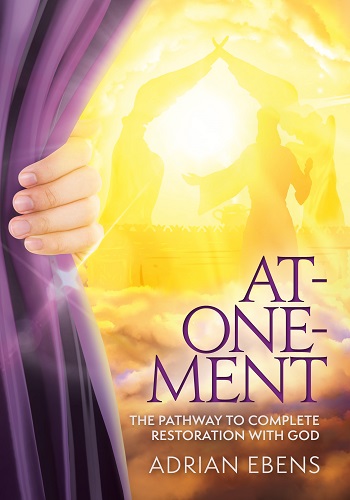
https://maranathamedia.com/book/view/at-one-ment
Let us Study these Things
Finally, I close with Waggoner's famous quote that is at the heart of the 1888 message that it is our DUTY to take to the world.
“But,” someone will say, “You have made the reconciliation all on the part of men; I have always been taught that the death of Christ reconciled God to man; that Christ died to satisfy God’s justice, and to appease Him.” Well, we have left the matter of reconciliation just where the Scriptures have put it; and while they have much to say about the necessity for man to be reconciled to God, they never once hint of such a thing as the necessity for God to be reconciled to man. To intimate the necessity for such a thing is to bring a grave charge against the character of God. The idea has come into the Christian Church from the Papacy, which in turn brought it from Paganism, in which the only idea of God was of a being whose wrath must be appeased by a sacrifice. PTUK September 21, 1893, page 386.7
Stop a moment, and think what reconciliation means. The existence of enmity is the only necessity for reconciliation. Where there is no enmity, there is no necessity for reconciliation. Man is by nature alienated from God; he is a rebel, full of enmity. Therefore man needs to be reconciled-to have his enmity taken away. But God has no enmity in His being. “God is love.” Consequently there is no necessity for Him to be reconciled; there is no possibility of such a thing, for there can be no reconciliation where there has been no enmity. PTUK September 21, 1893, page 386.8
We have turned this article into a booklet:

https://lastmessageofmercy.com/book/view/gods-justice-and-mercy
Kevin Mullins also directly addressed the "God killed God" question in his booklet: Did God Kill Jesus instead of Killing us?

